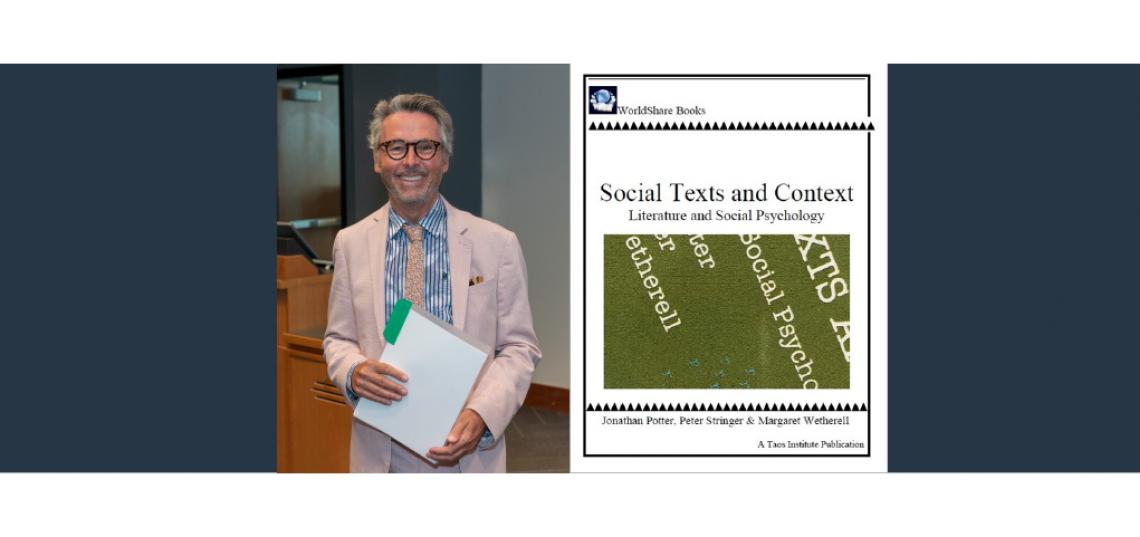
34 years since the book’s original release in 1984, Rutgers School of Communication and Information (SC&I) Dean Jonathan Potter and co-author Margaret Wetherell have released a new edition of their book “Social Texts and Context: Literature and Social Psychology,” with a new and updated preface.
The re-release is available as a free e-book, and begins, as Potter described, with “a preface putting it in the context of what came after” its initial publication. Potter said the new edition is dedicated to their late co-author, Peter Stringer.
The book was widely praised when it was first published, and news of its re-release has been well-received.
In a tweet, Stephen Reichter, the Wardlaw Professor of Psychology at the University of St. Andrews in the United Kingdom, wrote about the book, “The term ‘seminal’ is much overused. But this really is a seminal text. Its influence is measured not only by the many who agreed with it but by the fact that even those who fundamentally disagreed with it were changed by it.”
Potter and Wetherell, in a description of the book, wrote, “This book contains an integrated collection of eight essays on certain aspects of the relation between social psychology and literature. We hope that the reader will not find that either social psychology or literature have been privileged in our treatment.
“The aim is to demonstrate in a concrete fashion the basis, rather, for their mutual interaction. We shall argue that literature and social psychology are not the exclusive categories which they may appear to be. In certain important respects they share their concerns, methods and theoretical perspectives.
“An appropriate metaphor for expressing their inter-relationship, as we see it, is the mathematical concept of ‘over-lapping fuzzy sets’; although a space of many dimensions might possibly be more evocative of the way in which the two disciplines should interpenetrate and fold in upon one another.
“In doubting the separate identities of social psychological and literary activities, our intention is to encourage the reader simultaneously to re-examine the definition and subject-matter of each. Through the challenge to inter-disciplinary boundaries a new research perspective will, we hope, emerge in both fields.”
To download the book, click here.
